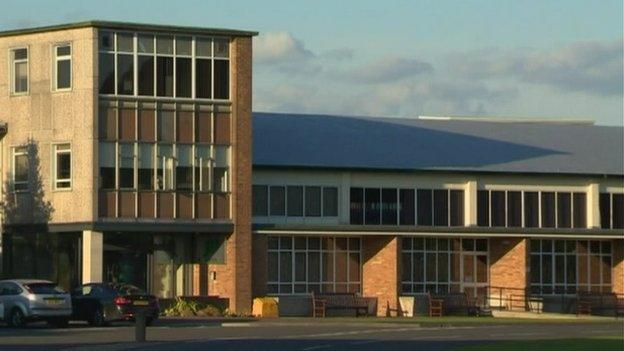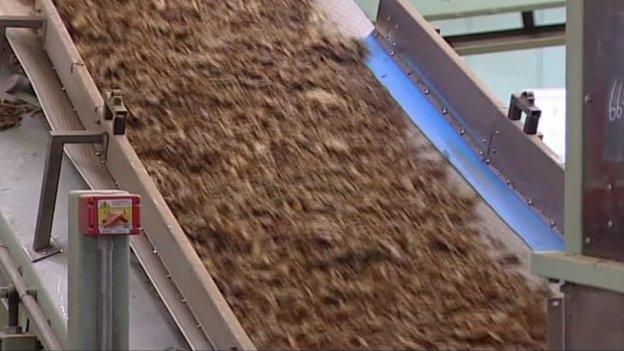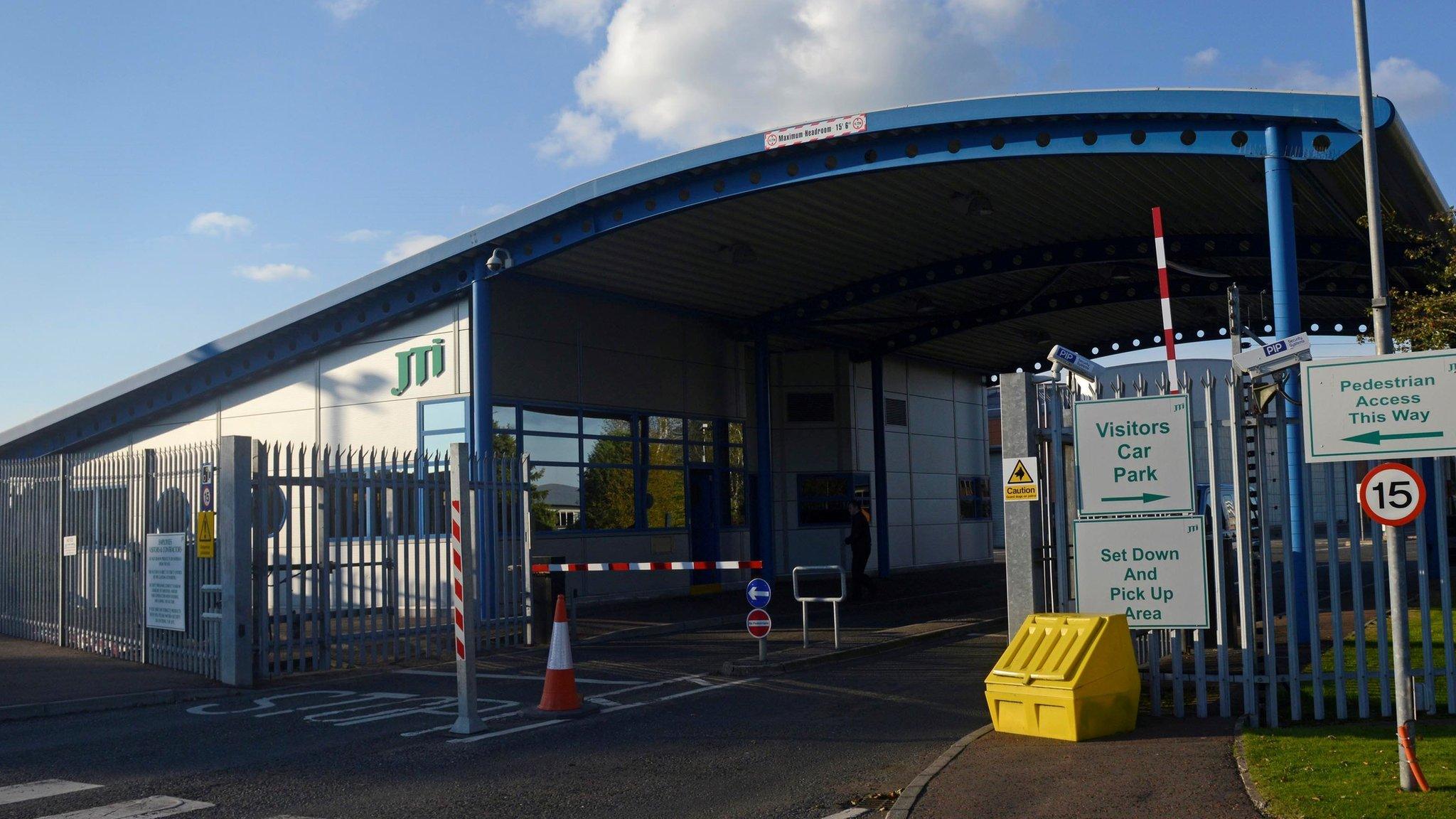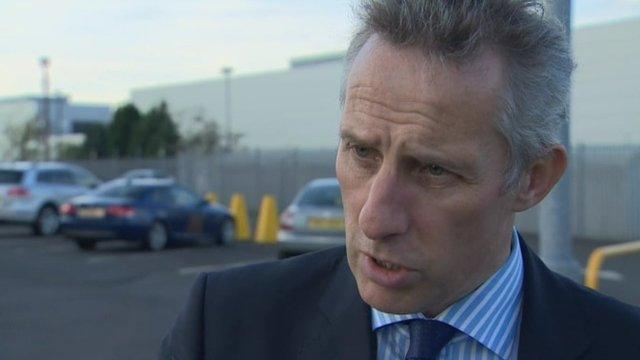JTI Gallaher: Ballymena factory staff given time off to absorb closure news
- Published

The JTI Gallaher factory in Ballymena is among the largest employers in Northern Ireland
Staff at a cigarette plant in County Antrim have been given time off to absorb the news that all 877 jobs are to be lost.
On Tuesday, staff were told the JTI Gallaher cigarette factory plant in Ballymena is to close permanently by 2017.
Previously known as Gallahers, the firm has manufactured tobacco in Northern Ireland for more than 150 years.
It is the last remaining tobacco factory in the UK.
Northern Ireland's First Minister Peter Robinson and Deputy First Minister said it was "terrible news".
Full production will resume on Thursday although office staff are still working and the factory is open.
JTI Gallaher said because many workers had been left shocked by the news, there was a safety issue around the operation of equipment.

Enterprise Minister Arlene Foster said the introduction of the EU tobacco products directive had impacted on the plant
It is a major employer and its closure is a significant blow to the economy.
It is estimated that the plant in Ballymena contributed £60m in wages to the local economy.
Enterprise Minister Arlene Foster said the introduction of the EU tobacco products directive had impacted on the plant because of changes to the size of roll your own tobacco packs.
In February, MEPs voted by 514 in favour to 66 against, with 58 abstentions, to approve the new anti-smoking legislation.
It would have required major adjustments in technology and operations at the JTI Gallaghers's plant in the town.
Criticism
The company has proposed moving its existing plants in Northern Ireland and Belgium to other countries, such as Poland and Romania.
Ms Foster criticised Sinn Féin MEP Martina Anderson for supporting the directive.
"Others were prepared to be champions of this EU directive," she said.
"Martina Anderson felt it was the right thing to do, but wasn't prepared to join the dots and to make the association that if she followed through on that support that it would cost jobs."
However, Ms Anderson said the directive would be applicable across Europe.
"It's going to be applicable in Poland, it's going to be applicable in Romania, and it was going to be applicable in the north," she said.

Staff at the Ballymena plant have been left shocked by the job losses
"We have another example of big industry example using workers as a pawn.
"They are not interested in safeguarding jobs, what they are interested in doing is trying to get cheap labour."
Ms Foster said she would be meeting the first minister and deputy first minister along with the DUP MP, Ian Paisley jnr, and the Employment Minister Stephen Farry on Wednesday.
'Tsunami'
Management at the factory said there was "shock and tears" as staff were told the news at a series of meetings.
Des Blackadder, editor of the Ballymena Times, said when the news broke it came like a "tsunami". , external
"It brought a wave of depression to this town because anybody with any common sense and certainly the workers knew that Gallahers' lifetime wasn't infinite, it was going to come to an end at some stage. But when it did come to an end yesterday, it really came with a great deal of shock," he said.
"There were many many ashen faces in Ballymena."
He said the impact of the losses would be felt by many in the town.

JTI Gallaher is the last remaining tobacco factory in the UK
"The vast majority of people in Ballymena would have had a relative who worked in Gallahers or would have known several friends who worked in Gallahers, so it's something which affects an entire community," he added.
Restructuring
The Ballymena factory is currently owned by Japan Tobacco International (JTI), which took over in 2007.
JTI released a statement on Tuesday , externalannouncing its intention to "restructure its manufacturing facilities as a result of significant and sustained changes impacting its global business".
It has proposed moving its existing plants in Northern Ireland and Belgium to other countries, such as Poland and Romania.
Leading politicians have pledged to support the workers and said they would work to try to mitigate the job losses.
- Published8 October 2014

- Published7 October 2014

- Published7 October 2014

- Published7 October 2014

- Published7 October 2014
